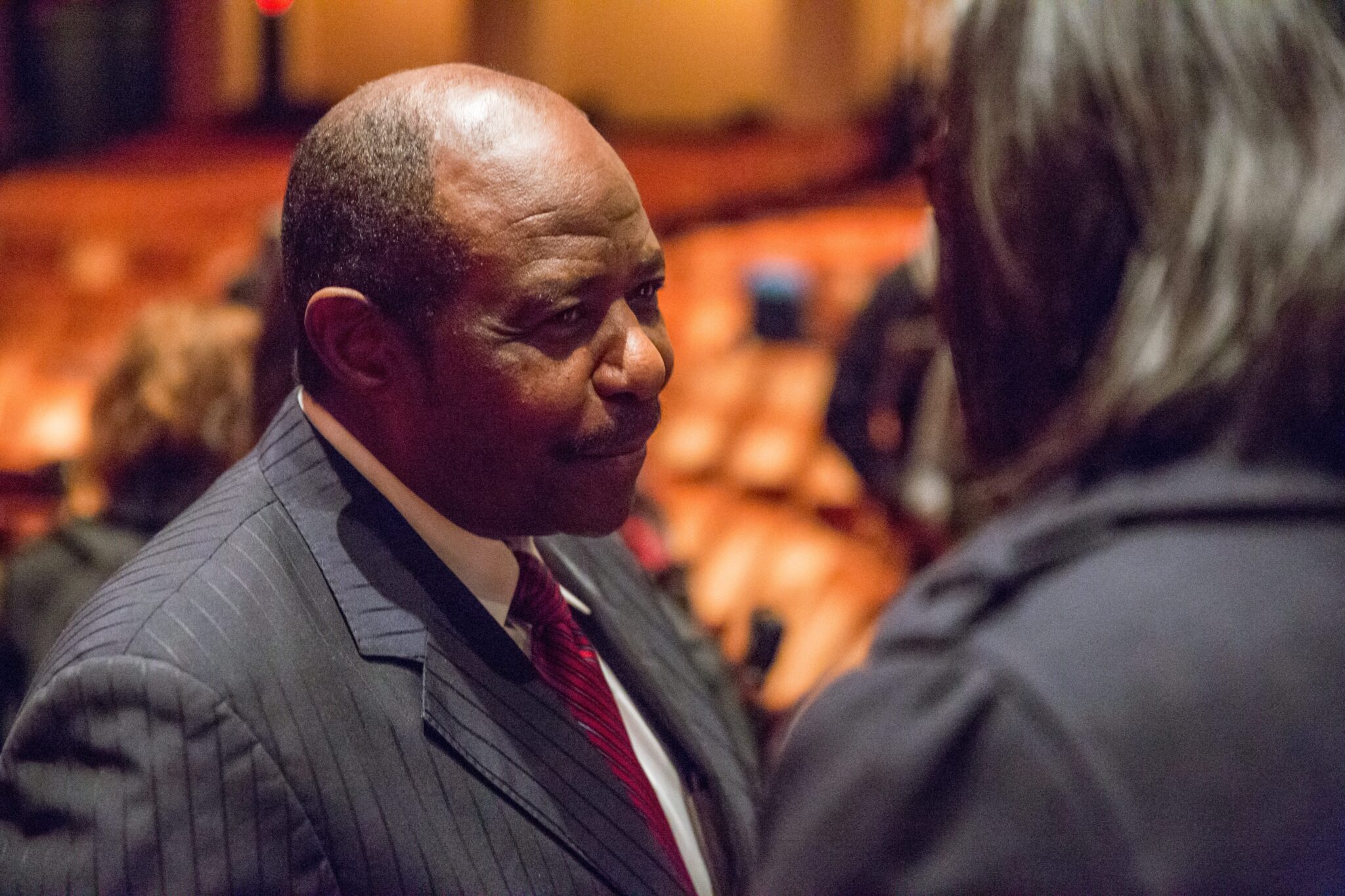Rwandan humanitarian reflects on genocide, international inaction
Paul Rusesabagina reflects on his role in saving over 1,000 Rwandan refugees and the implications of a passive international community. According to Rusesabagina, history will repeat itself.

Lecture by Paul Rusesabagina, held on Thursday, March 27, 2014 at the Gerald R. Ford School of Public Policy, University of Michigan. Part of the IPC commemoration of the 20th anniversary of the Rwandan Genocide. For more information: http://fordschool.umich.edu/events/calendar/1721/
Paul Rusesabagina saved 1,268 refugees from the genocide that decimated the nation during its 1994 civil war by providing shelter in his hotel, Hôtel des Mille Collines.
He is adamant that history is repeating itself with the international community continually failing to address human rights violations properly. Drawing parallels from the massacre he witnessed in Rwanda to the civil wars that have ravaged Syria, the Central African Republic and the Congo, Rusesabagina called the United Nations peacekeeping operation a catastrophic failure.
“The whole world decided to abandon our world to thieves… and gangsters,” Rusesabagina said. “The U.N. army mission was not to keep peace, but to stand and observe and report back to a desk in an office in NYC.”
The assassination of Rwandan President Juvénal Habyarimana in a plane crash on April 6, 1994, triggered the country’s descent into arguably the worst episode of ethnic genocide since World War II. The perpetrator of the attacks remains unknown.
The responsible party is either the Rwandan Patriotic Front (a Tutsi military organization) or Hutu extremists within the Rwandan military itself. The assassination initiated radical military leaders to begin murdering Tutsis and moderate Hutus mere hours after the crash. Ten Belgian peacekeeping officers were among the first to be murdered to illustrate a hefty display of power and discourage further peacekeeping troops.
In approximately 100 days, Rwanda became a war-torn nation that forced Rusesabagina to use his resources as a hotel owner to provide refuge for those in his community. Rather than flee the nation, Rusesabagina listened to his conscience and stayed.
“If I would have fled and people died, I would have never been a free man,” he said. As the product of a mixed couple (Hutu and Tutsi) and the husband of a Tutsi wife, he had a particular stake in the fight.
Hôtel des Mille Collines was attacked by militant forces many times and food was scarce. Refugees survived on limited amounts of sweet potatoes and beans for months. Despite the situation, its refugees survived.
“It was a kind of hell,” Rusesabagina said.
A Congolese refugee who fled her country in 2008 related to much of Rusesabagina’s story. Her reaction to the event was emotional.
“Everything he talked about, I went through it,” Mona Jumanne, now a political science student at UT, said. “It’s nice to hear other people tell their stories because I haven’t come to that point yet. Everything is emotionally bad.”
Jumanne’s biggest emotional agitator is the idea of her own “homelessness” viewed through an international prism. “All of you [Americans] have a home to go to—I don’t. The only memories I have of my home are darkness and death,” she said.
The aftermath of the Rwandan conflict was the worst part for Rusesabagina. It was not until he drove south with his wife and saw the “butchered bodies” that the complete devastation of the situation dawned on him. Militia members had dehumanized Tutsis so that the cleansing the nation resembled an extermination — a ridding of pests — rather than murder.
“People close eyes and ears to avoid concern. The peace keepers did not come to keep peace. They came to observe…” said Rusesabagina, reiterating the fact that international help was lacking.
In March 2013, nearly 20 years after the Rwandan conflict, former U.S. President Bill Clinton told CNBC that America’s inaction was “the biggest regret” of his administration.
Though Rusesabagina’s story is unique, he encouraged the audience to heed his advice on the best weapon people have: words. Though he had multiple opportunities to react with violence or firepower, he reasoned with the military members when his life was threatened.
When he had a gun to his head and when the militia was attempting to scale the fence to enter the hotel, his defense was words.
“Dialogue is important. Sit down face to face. Anything good that will happen will be through words,” he said.
The Hutu-Tutsi war concluded with the Tutsis reduced to 25 percent of their original population in Rwanda. In the span of three months, the Hutu-controlled military extremists murdered approximately 500,000 to one million Tutsi peoples.
“I think it’s really important to realize that people are capable of these things,” Ashley Kipp, senior anthropology major, said. “It is important to keep a dialogue where you can talk about this and realize when history is going to repeat itself.”
Rusesabagina’s final call to the audience was one of benevolence. In his final points, he illustrated his thought that no one is completely evil. He instructed attendees to always search for the “soft spot” in each heart they encounter.
“It doesn’t hurt to do anything good wherever you can…” Rusesabagina said. “Whatever you do, do it well. Never do anything halfway.”
You can find a visual depiction of Rusesabagina’s story in the 2004 movie Hotel Rwanda.
Edited by Kaitlin Flippo
Featured image by FordSchool

